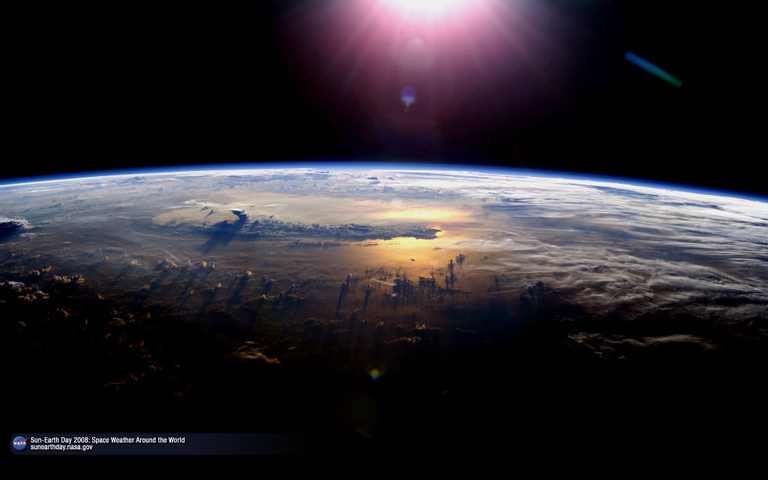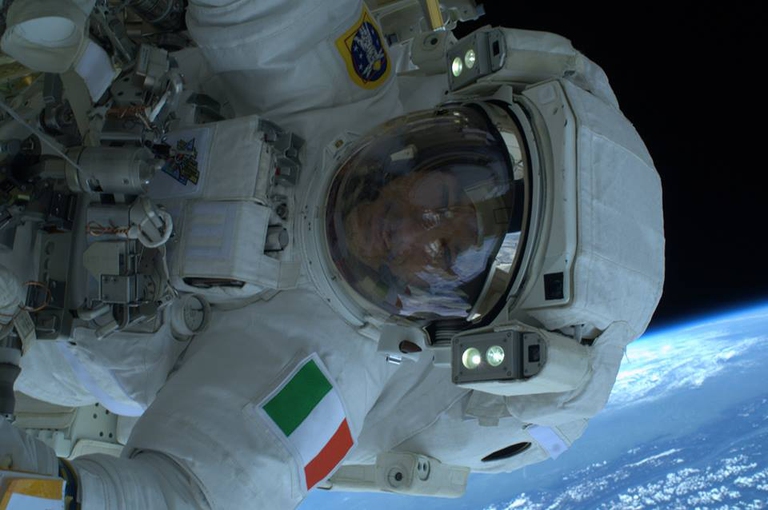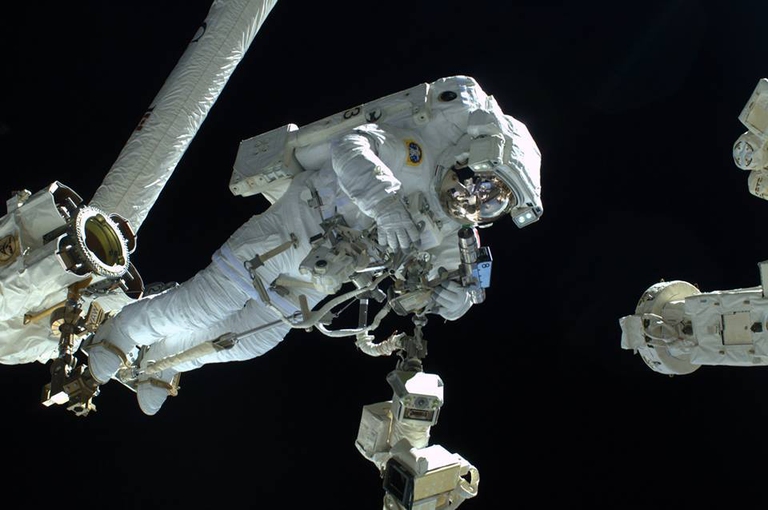Luca Parmitano, an Italian astronaut told some of his experiences during the period he spent in space with no gravity.
After less than 2 years from his first space walk (on 9 July 2013), Luca Parmitano will be present at Milan Expo 2015 USA pavilion to tell about his experiences and feelings experienced at a height of 400 km, with no gravity.
Charles F. Bolden Jr., the Administrator of NASA has introduced the event, explaining to participants how NASA, thanks to about 100 satellite systems, monitors the health of the planet observing its main elements: water, soil, oceans and atmosphere. Bolden Jr. also talked about current changes: “Data show us that the climate is changing. I believe that we are worsening the conditions of nature. That is why we need we need these tools to understand our actual impact on environment.”
![Credits Nasa SED_wall_1920x1200]()
Then, the Sicilian astronaut talked about his experience on the International Space Station, a fascinating story for those loving space, and especially the Earth. “One of the most complicated things about Extra-vehicular activities is choreography. You have to do such a lot of things in little time, so every action is planned minute by minute” said Luca Parmitano.
“During one of these activities I had an extraordinary privilege. While I was tethered to one of the arms of the space station, I had about 7 minutes of free time. My hands were free and I held a camera. Then, all of a sudden, I saw my first orbital sunrise.”
In just a moment, all the colours of Earth appear out of nowhere.
The landscapes resembles “a view from the Bible” explains the astronaut. “We orbit around Earth at about 38,000 km/h and in a direction opposite to Earth’s rotation. All of a sudden, you see an orbital sunrise. All the colours rise from darkness. Imagine first the colour of the sea, the millions shades of blue, white waves, ochre land and green forests. In just a moment, all the colours of Earth appear out of nowhere.”
![Credits: Luca Parmitano/Facebook. 1013136_176535755853659_1058778167_n]()
In that moment, we perceive all the uniqueness and magnificent beauty of our planet. Earth is the only planet we have, the only one hosting life as we know it. Yet Earth does not belong to us, neither does our future: it is up to us, but it does not belong to us. This is the time to think about our planet and how to take care of it.”
![slide_307897_2682870_free]()
However, this was not the only experience which struck the astronauts most. Parmitano describes in detail the last moments before its departure: the silence before the launch, the rumble and penetrating vibrations of the rocket engine, then the incredible acceleration from zero to 28,000 km/h in 8 minutes and 48 seconds. “The next moment the silence fell and what I held in my hands began to float”, while his colleagues looked at him and smiles.
Parmitano ended his speech saying: “One day we will move to another planet and I believe that when an astronaut, probably born on Mars, get back on Earth, once he reaches its orbit he will say: I’m back home.”
Translated by Private: Marco Alegi
Siamo anche su WhatsApp.
Segui il canale ufficiale LifeGate per restare aggiornata, aggiornato sulle ultime notizie e sulle nostre attività.

Quest'opera è distribuita con Licenza Creative Commons Attribuzione - Non commerciale - Non opere derivate 4.0 Internazionale.











